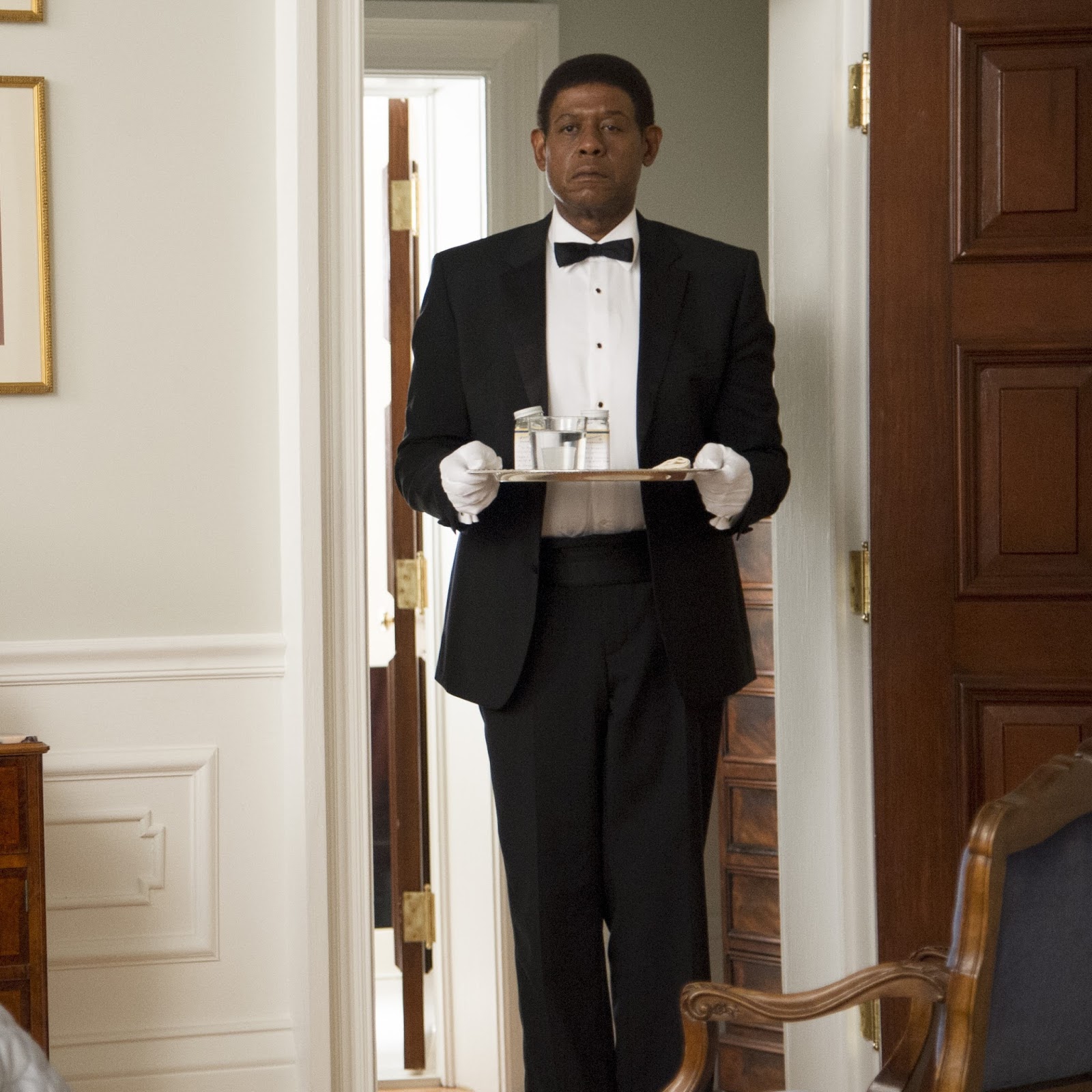Lee Daniels' The Butler gives off the feel of a really good three act play; its long, yet emotionally striking and satisfying. The Butler tells the life story of Cecil Gaines (played by Forest Whitaker); a man who has committed his life to becoming the best server an African American can be during a very racially biased America. Cecil ends up becoming a butler for none other than the White House itself, serving there for the majority of the film. The Butler is told through three perspectives of Cecil, his wife (Oprah Winfrey), and his son (David Oyelowo) as they live, struggle, and adapt to the changing times of America and its many presidents.
I was pleasantly surprised to find the film’s editing and pacing of events to be well done. Take for example the opening scene where we see Cecil as a young boy working on the cotton fields with his family. Horrible tragedy strikes when the plantation owner forces himself on Cecil’s mother and then kills his father for protesting; causing Cecil to be taken in by the elderly caretaker of the cotton farm to learn how to serve for the plantation family (and the owner himself). I think many of us as an audience believe (and justly so) that what the plantation owner did was more than horrific and that there deserves to both be justice and time spent to sorrow over what happened.
However the film instead takes only several minutes to quite rapidly move through these scenes. Now I’m not sure if this was the director’s intention or not, but I believe this was done not because what happened wasn't tragically important to Cecil, but because there was nothing Cecil could do. It was sadly just the way life was back then for an African American and Cecil had to quickly accept these events and move on in order to survive both physically and mentally in the cruel racist world he lived in. It's not until some 60 years later, when the world’s become a much different place, that Cecil ends up revisiting these events and places. Many of The Butler’s events are paced accordingly to how Cecil can/will view them at the time they occur; adding to this is the soundtrack which is placed elegantly in line with the scenes.
Forest Whitaker does a terrific job turning his title character into a tough, yet smart and loving man who is conflicted and troubled by how the times and events are changing. We see Cecil as a man who’s learned over the years how not only to survive, but to thrive in the white man’s world. We see him working for many different Presidents (each with their own viewpoints and perspectives) over many different terms. Yet when he finds America has begun to change for the better, Cecil becomes confused and unsure on how to react; rather wanting to play it safe and steady than help with the civil rights movements for his, and particularly his family’s, own protection. Because the audience is allowed to view the horrors Cecil goes through we understand his resentment towards the movement and need to protect his family from racism; so that when he views his own son as a foolish, cash-wasting rebel for joining the movement we feel sympathy rather than anger for why he believes this.
Likewise, we gain understanding for his son Louis Gaines as we’re also allowed to view his perspective of events. Louis Gaines gives the audience the opposite view of the battle being fought for racial equality from the multiple viewpoints he sees (MLK, Black Panthers, Student Programs, etc…). Never does his character seem dislikable or annoying; in fact I feel sympathy for his opinions, even agree with them at times. We as the audience are put into an unusual situation where we can appreciate and understand both characters positions, even when they are arguing with each other for complete opposites. This plays effectively with the rest of the film, never letting it become too one-sided with an opinion; consistently exploring the other side(s) of the argument.
I could not finish this review without addressing the wide and wonderful cast of people who portrayed the various Presidents of the United States. I found almost all the Presidents to be delightfully spot-on with their attitudes and personalities. Both James Marsden and Liev Schreiber (who play JFK and LBJ respectively) capture the quirks and accents with great effect; while John Cusack does one hell of a fantastic job performing the actions, speech, movements, and attitude of Richard Nixon down to a T.
And then there’s Alan Rickman who I didn't even realize was the actor portraying former president Ronald Reagan (it completely took me by surprise when I was later looking up the actors). He, like the other actors, does a terrific job in his portrayal of Reagan, capturing all the characteristics he was known for. The only actor who I felt fell flat was Robin Williams as Dwight Eisenhower; not that he did a bad job acting, but because it felt too much like Robin Williams pretending to be a president than the actual real deal (the voice just gave away too much). However, this alone does not hinder The Butler’s large slew of performing actors superbly playing America’s former leaders.











No comments:
Post a Comment